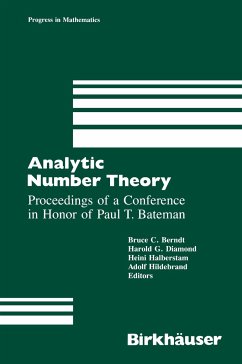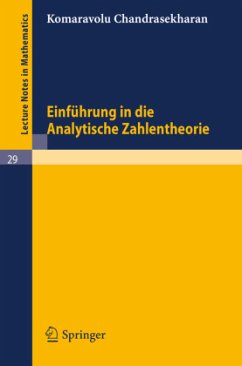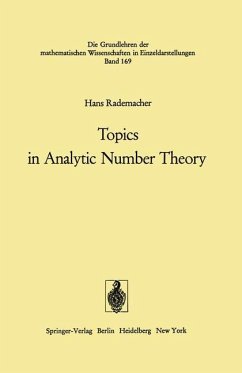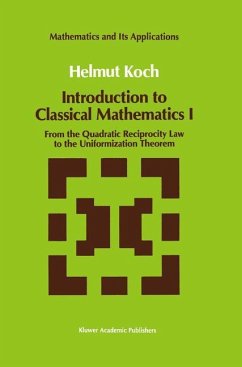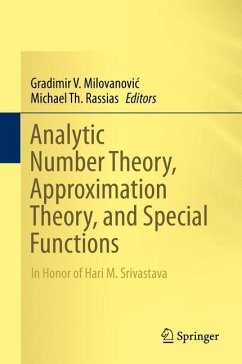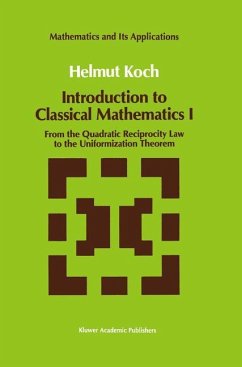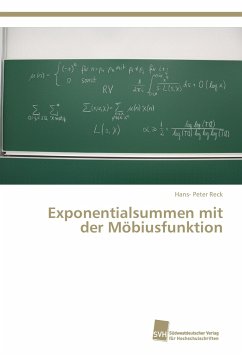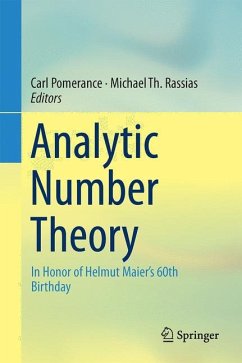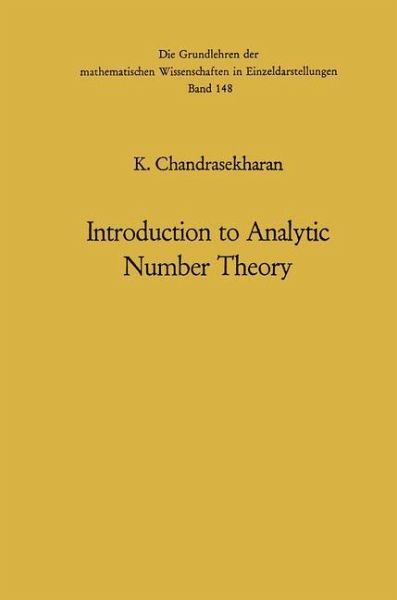
Introduction to Analytic Number Theory
Versandkostenfrei!
Versandfertig in 1-2 Wochen
92,99 €
inkl. MwSt.

PAYBACK Punkte
46 °P sammeln!
This book has grown out of a course of lectures I have given at the Eidgenossische Technische Hochschule, Zurich. Notes of those lectures, prepared for the most part by assistants, have appeared in German. This book follows the same general plan as those notes, though in style, and in text (for instance, Chapters III, V, VIII), and in attention to detail, it is rather different. Its purpose is to introduce the non-specialist to some of the fundamental results in the theory of numbers, to show how analytical methods of proof fit into the theory, and to prepare the ground for a subsequent inquir...
This book has grown out of a course of lectures I have given at the Eidgenossische Technische Hochschule, Zurich. Notes of those lectures, prepared for the most part by assistants, have appeared in German. This book follows the same general plan as those notes, though in style, and in text (for instance, Chapters III, V, VIII), and in attention to detail, it is rather different. Its purpose is to introduce the non-specialist to some of the fundamental results in the theory of numbers, to show how analytical methods of proof fit into the theory, and to prepare the ground for a subsequent inquiry into deeper questions. It is pub lished in this series because of the interest evinced by Professor Beno Eckmann. I have to acknowledge my indebtedness to Professor Carl Ludwig Siegel, who has read the book, both in manuscript and in print, and made a number of valuable criticisms and suggestions. Professor Raghavan Narasimhan has helped me, time and again, with illuminating comments. Dr. Harold Diamond has read the proofs, and helped me to remove obscurities. I have to thank them all. K.C.



